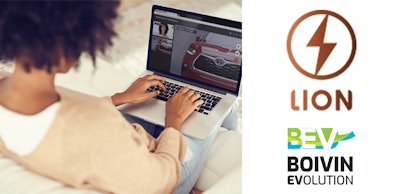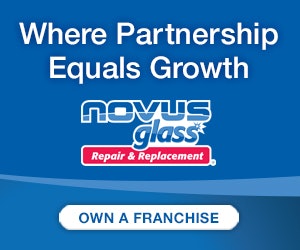
Toronto, Ontario — In this week’s EV/AV report two Quebec-based companies announce the joint sale of zero-emission garbage trucks, Ford Motor Company forms a new partnership to create driver-assistance systems and Toyota introduces a new platform allowing customers to buy vehicles via video chat.
GAS-FREE GARBAGE
This week, electric truck and bus maker The Lion Electric Co. of Saint-Jérôme, Quebec and electric waste-collection truck-body developer, Boivin Evolution, located in Lévis, Quebec, announced their first joint sale of a new Lion8 zero-emission garbage truck.
Waste Connections Inc., a major North American waste management company bought a pair of the vehicles for use in two locations—Washington and Florida.
“Hopefully, [it’s] the first two of many more to come,” says Patrick Gervais, Lion’s vice-president of marketing and communications, in an email to Electric Autonomy Canada.
“We are excited to lead the industry with the introduction of the Lion-Boivin electric vehicles to our markets and look forward to expanding their application,” said Worthing F. Jackman, president and CEO of Waste Connections in a statement announcing the deal. “This investment in zero-emission vehicles furthers our continuing efforts to reduce our environmental impact and expand our capabilities within the communities we serve.”
The EV chassis is made by Lion Electric, while Boivin Evolution makes the fully electric waste collection body and automated arms. According to the two companies, this combination is the first application of its kind in North America. It’s also a perfect use case of a partnership strategy that Lion intends to build on to drive sales of the Lion8 vehicle in different markets.
Waste Connections can expect each of its new trucks to be able to travel about 130 miles (210 kilometres), reaching about 1,200 homes, on a single charge. Lion and Boivin also note that being fully electric they are also oil-free, don’t need a lot of extra equipment like hydraulic pumps, valve and tubes, and generate zero noise pollution. As well, the trucks have a regenerative brake system that ensures longer brake life, and a projected saving of 80 per cent on total energy costs. The vehicles are to be delivered by the end of 2020.
COMING TOGETHER
Ford Motor Company and Mobileye, an Intel company, are collaborating on driver-assistance systems across Ford’s global product lineup.
“Providing people with extra confidence while driving is invaluable, and it’s exactly what our available Ford Co-Pilot360™ features are designed to do,” said Lisa Drake, chief operating officer, North America; vice president, Global Purchasing, Ford Motor Company. “By customizing Mobileye’s excellent software and sensing technology, Ford’s great driver-assist features will continue to evolve and provide customers with confidence on the road throughout the life of their vehicles.”
As chosen supplier of vision-sensing technology for Ford advanced driver-assistance systems, Mobileye will provide its EyeQ® family of devices, together with vision-processing software to support Level 1 and Level 2 driver-assistance systems in Ford vehicles globally.
“It is a privilege to extend and expand our long-standing collaboration with a company that is so committed to safety on behalf of its global customer base,” said Professor Amnon Shashua, president and CEO, Mobileye. “We look forward to working closely together to bring these functionalities to market in the full Ford product lineup.”
Ford will take advantage of Mobileye’s technology throughout the life of its next-generation production vehicles, including F-150 and Mustang Mach-E, as well as future products that offer advanced driver-assistance systems features.
VIDEO CHAT PURCHASES
Over the past few years, Toyota Canada has introduced many online tools to serve a steadily increasing number of Canadians interested in building and pricing their new vehicle via the company’s websites (Toyota.ca and ShopToyota.ca).
One of its more recent innovative service offerings is Toyota Easy Shop—a new platform of tools launched on its websites in March with the help of Rapid RTC, a Canadian tech company. Toyota has expanded the Easy Shop offering several times since then, but the new video chat feature takes the online experience to a whole new level.
Easy Shop Video Chat allows a customer to turn a text chat into a one-way or two-way video chat with a product advisor at any time. With the video component active, a product advisor can share their screen with a shopper. Together, they can build and price a vehicle, fill out forms and submit a request for financing.
The product advisor can also transfer the Easy Shop Video Chat from their desktop computer to their phone to take the customer on a virtual tour of the showroom or vehicle lot. The advisor can even offer a live, interactive walk-around to allow the customer to explore vehicles and ask questions about their features and specifications.
“There are many reasons a person may prefer to shop for a vehicle online, and the better we can make that experience, the happier our customers will be,” said Martin Gilbert, Director of Corporate Strategy and Innovation at Toyota Canada. “We’re excited that we’re able to enhance our virtual showrooms with this important new feature. Our dealers are the best in the industry, and our product advisors at those dealers are the people best able to help our customers decide which Toyota is right for them. Tools like Toyota Easy Shop Video Chat allow us to better connect our customers with those product experts, wherever they happen to be.”





















